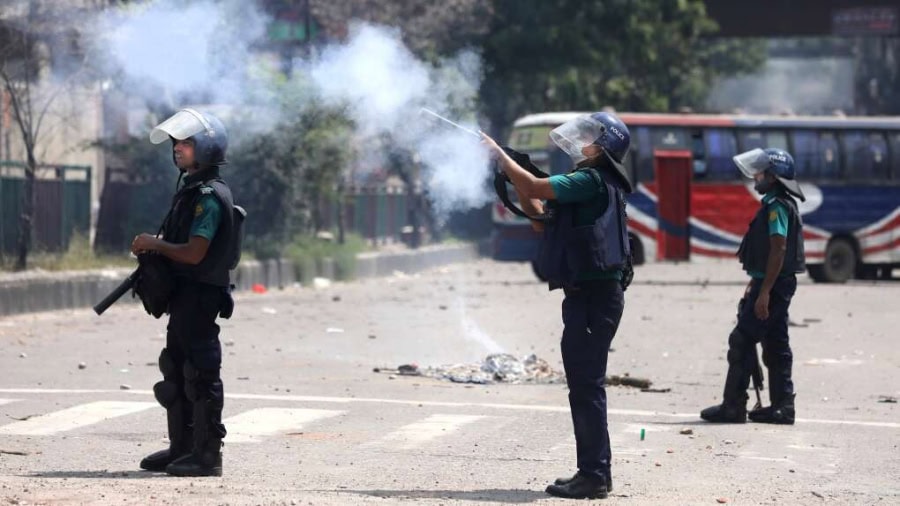DHAKA – Prime Minister Sheikh Hasina’s government in Bangladesh imposed a nationwide curfew and dispatched military forces to restore order following severe clashes related to job allocation disputes.
The announcement, made by Obaidul Quader, the general secretary of the ruling Awami League, came after police fired on demonstrators and banned all gatherings in Dhaka.
The media reports said that several fatalities, with Independent Television reporting 17 dead and Somoy TV citing 30.
According to Associated Press, 23 bodies were seen at Dhaka Medical College and Hospital, though it was unclear if all had died on Friday.
Thursday had already seen 22 deaths in the bloodiest day of the protests so far, which have intensified since starting weeks ago. This unrest is the most significant challenge to Prime Minister Hasina since her re-election in January, which was boycotted by major opposition groups.
The protests reflect widespread discontent among young graduates facing limited job opportunities and frustration over the quota system that reserves up to 30% of government jobs for relatives of 1971 war veterans.
The government deployed both police and paramilitary forces to control the situation, with universities closing and Dhaka police banning all gatherings. On Wednesday, border guards fired at a crowd of over 1,000 protesters outside the Bangladesh Television headquarters, which had been attacked and set ablaze the previous day. Internet and mobile services in Dhaka were disrupted, coinciding with a global internet outage that affected various sectors.
The disruption, attributed to damage at a telecommunication data center, led to criticism from student protesters and human rights advocates.
They accused the government of suppressing dissent and violating rights.
CIVICUS, a global non-profit, recently downgraded Bangladesh’s civic freedoms to “closed” due to crackdowns on opposition figures.
The Bangladesh Nationalist Party supported the protests and organized their own demonstrations, with police clashing with BNP supporters and arresting a senior leader.
In response to the protests, the government had previously halted job quotas in 2018, but the High Court recently reinstated them, leading to the current unrest.
The Supreme Court suspended this ruling pending an appeal, and Hasina urged the protesters to wait for the court’s decision. She expressed the confidence in a fair outcome.










